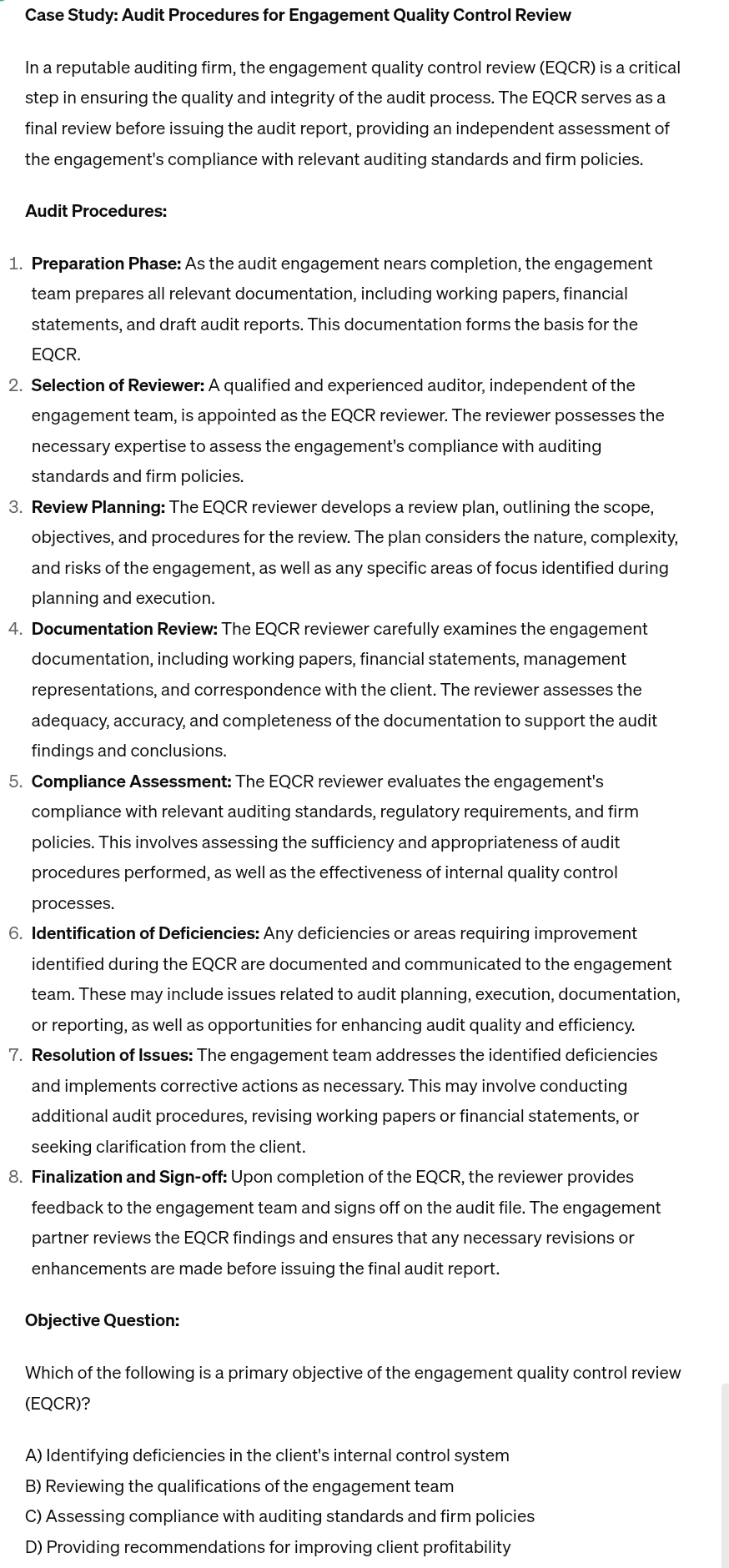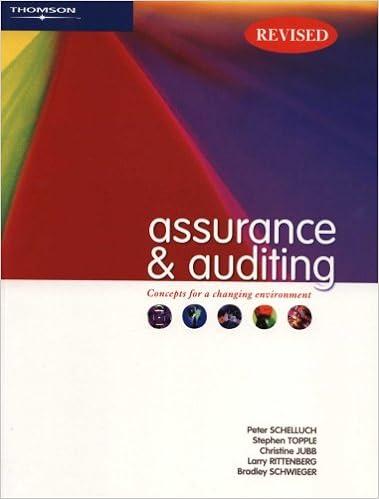Answered step by step
Verified Expert Solution
Question
1 Approved Answer
Audit procedures for engagement quality control review Case Study: Audit Procedures for Engagement Quality Control Review In a reputable auditing firm, the engagement quality control
Audit procedures for engagement quality control review
Case Study: Audit Procedures for Engagement Quality Control Review
In a reputable auditing firm, the engagement quality control review EQCR is a critical step in ensuring the quality and integrity of the audit process. The EQCR serves as a final review before issuing the audit report, providing an independent assessment of the engagement's compliance with relevant auditing standards and firm policies.
Audit Procedures:
Preparation Phase: As the audit engagement nears completion, the engagement team prepares all relevant documentation, including working papers, financial statements, and draft audit reports. This documentation forms the basis for the EQCR.
Selection of Reviewer: A qualified and experienced auditor, independent of the engagement team, is appointed as the EQCR reviewer. The reviewer possesses the necessary expertise to assess the engagement's compliance with auditing standards and firm policies.
Review Planning: The EQCR reviewer develops a review plan, outlining the scope, objectives, and procedures for the review. The plan considers the nature, complexity, and risks of the engagement, as well as any specific areas of focus identified during planning and execution.
Documentation Review: The EQCR reviewer carefully examines the engagement documentation, including working papers, financial statements, management representations, and correspondence with the client. The reviewer assesses the adequacy, accuracy, and completeness of the documentation to support the audit findings and conclusions.
Compliance Assessment: The EQCR reviewer evaluates the engagement's compliance with relevant auditing standards, regulatory requirements, and firm policies. This involves assessing the sufficiency and appropriateness of audit procedures performed, as well as the effectiveness of internal quality control processes.
Identification of Deficiencies: Any deficiencies or areas requiring improvement identified during the EQCR are documented and communicated to the engagement team. These may include issues related to audit planning, execution, documentation, or reporting, as well as opportunities for enhancing audit quality and efficiency.
Resolution of Issues: The engagement team addresses the identified deficiencies and implements corrective actions as necessary. This may involve conducting additional audit procedures, revising working papers or financial statements, or seeking clarification from the client.
Finalization and Signoff: Upon completion of the EQCR, the reviewer provides feedback to the engagement team and signs off on the audit file. The engagement partner reviews the EQCR findings and ensures that any necessary revisions or enhancements are made before issuing the final audit report.
Objective Question:
Which of the following is a primary objective of the engagement quality control review EQCR
A Identifying deficiencies in the client's internal control system
B Reviewing the qualifications of the engagement team
C Assessing compliance with auditing standards and firm policies
D Providing recommendations for improving client profitability

Step by Step Solution
There are 3 Steps involved in it
Step: 1

Get Instant Access to Expert-Tailored Solutions
See step-by-step solutions with expert insights and AI powered tools for academic success
Step: 2

Step: 3

Ace Your Homework with AI
Get the answers you need in no time with our AI-driven, step-by-step assistance
Get Started


